Families 'pushed out' of area where they've lived for generations
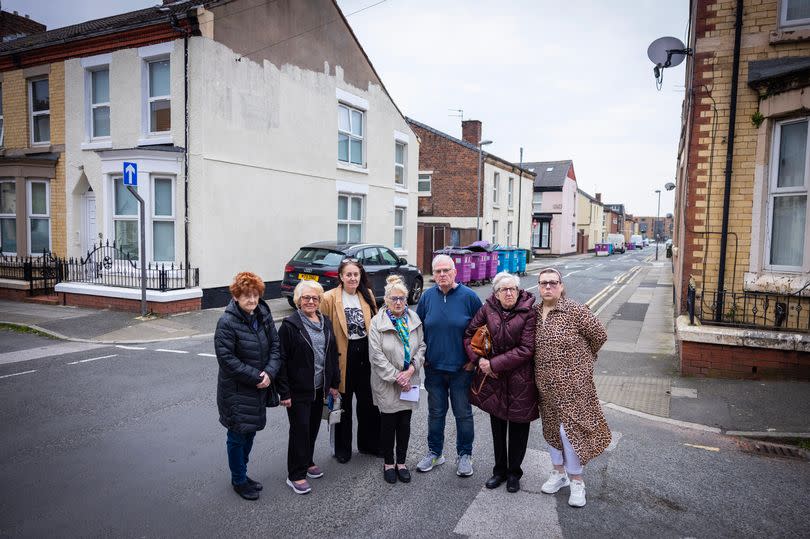
It's 6pm on a Wednesday evening and Holt Road Residents Association have gathered in their local pub in Kensington.
Among them are people who have lived in the area their entire lives - but it is worlds apart from how they remember it during their childhoods. The terraced houses which were once full of families have in many cases been bought up by landlords and converted into houses of multiple occupation (HMOs) for as many students and tenants as possible.
Residents feel this has created a transient community who don't have a vested interest in the area and looking after it. In June 2021, Liverpool City Council brought in a change called an Article 4 direction which makes such conversions more difficult.
READ MORE: Landlord who put 'profit ahead of safety' banned from renting homes
READ MORE: Family of four sleeping in one room after mould 'consumes home'
The Article 4 direction means that in certain parts of the city - including this one - planning permission must now be obtained to convert a property into a HMO for three or more people. Another change under the council's local plan means planning permission can now be refused where there is a concentration of more than 10% of HMOs in a particular area.
These measures were welcomed in areas like Kensington but when it comes to the number of HMOs, many feel the damage has already been done. Residents also fear landlords are finding new ways to get around regulations and are converting properties without obtaining planning permission.
The ECHO sat down with Holt Road Resident Association this week, who were formed in 2018 with the aim of trying to make Kensington a better place for everyone to live and work.
"If I was younger I would sell my house and go. I'm 80 now - where am I going to go?"
Growing up in Kensington back in 1947, Agnes Dickinson said: "It was an affluent area around here, it was a community. You knew all of your neighbours."
But today, Agnes, 77, said: "There's 36 houses in our street and you've got five family homes", with the rest having been converted into HMOs. Like Agnes, Anne Hammel has also always called the area her home.
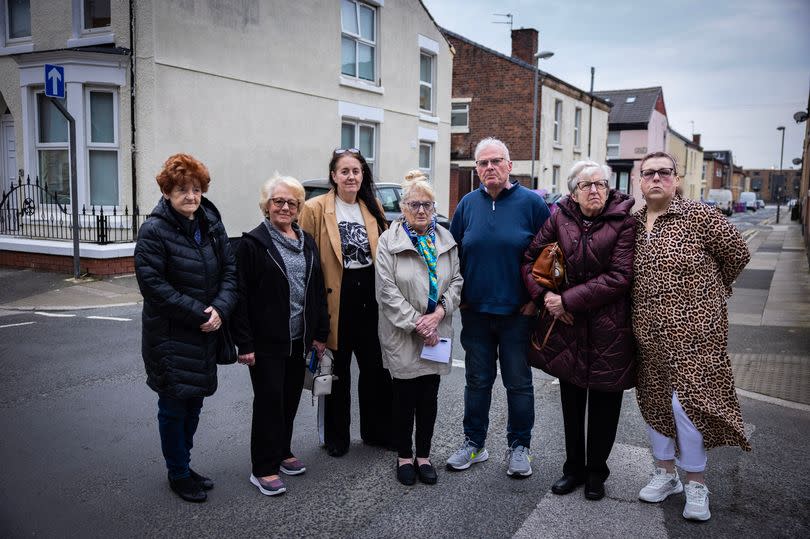
Anne recalls: "Everybody wanted to live around here for the simple reason that we had many, many factories on Edge Lane. People bought the houses or rented the houses so they could work in the factories.
"Gradually the factories started to close and people moved out then. Housing associations moved in and started buying houses.
"You got the landlords then who wanted to turn them into HMOs. We've got a lot of absentee landlords. For some houses they can't trace the landlords and they just sit empty.
"If I was younger I would sell my house and go. I'm 80 now - where am I going to go? How am I going to get a mortgage?"
"We don't have to live like this"
The ECHO has regularly reported on the issues HMOs have created in areas like Kensington - including litter, fly-tipping, parking problems and anti-social behaviour. Dave Rimmer, 63, told the ECHO: "We started this [residents association] in 2018, we said 'we don't have to live like this.'
"We had a meeting with the council and what they promised was great. They redid the alleyways, they took the rubbish out, they reflagged it all. The alleyways are brilliant.
"Then they said they would give us these Euro bins on a temporary basis and after that we will get underground bins. The Euro bins will be cleaned regularly, disinfected, the streets will be cleaned and rat free.
"It was rat free for a few months - there were no rats around. Everyone was pleased, they were cleaning the streets. The street sweepers were around all the time. Then the last two or three years it's declined again."
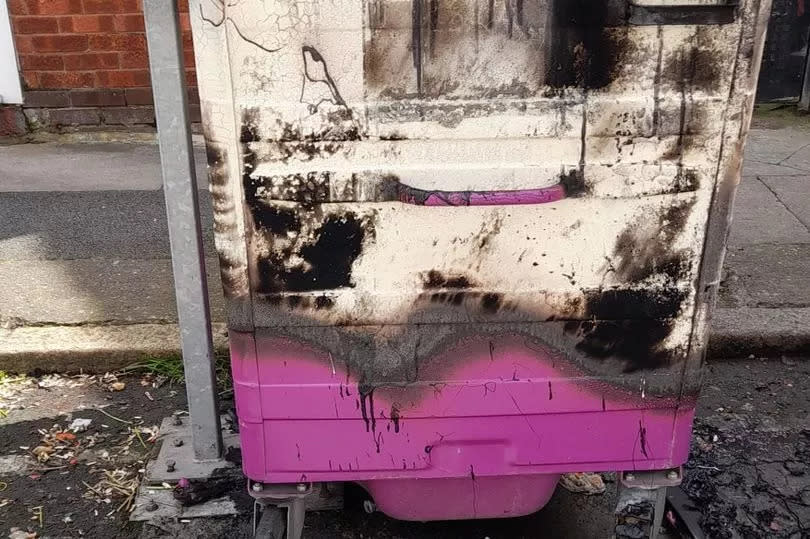
Communal bins, also known as Euro bins, were introduced in areas like Kensington in 2020, as part of the city council's £6m alleyway regeneration scheme. This saw wheelie bins removed from some terraced streets across the city and replaced with large container bins to regenerate dirty and pest-infested alleyways, and increase recycling.
When the Euro bins were first introduced, Dave said: "People were using the bins properly but now they're leaving bags of food by the bin rather than putting it in them." While the bins are emptied regularly, Dave said they are not cleaned inside or out, which is attracting vermin.
Photos taken in Kensington in recent weeks show streets lined with litter and communal burns burnt out with fly-tipped items propped up next to them. Anne-Marie Savage, 54, said: "We get people driving into the area fly-tipping in the area and driving away - that's how bad it's got."
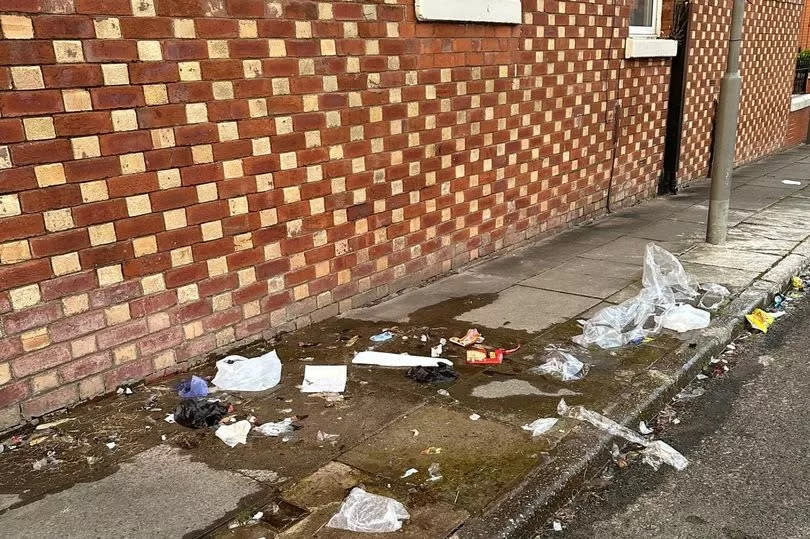
The Holt Road Residents Association believe the level of street cleaning is also not sufficient enough to tackle the amount of waste being dumped in the area. The leader of Liverpool City Council Liam Robinson told the ECHO: "I can completely understand the frustration of the residents, they're a really great, tight knit community.
"I've been very clear with the council's planning department since I have become leader that enforcement against HMOs is the priority of planning enforcement now."
Cllr Robinson spoke of "the greed of a number of landlords" who are "not bothered about the quality of the property, they're not bothered about how they look after the tenants or the residents, all they're bothered about is making huge amounts of money out of what were traditionally three-four bedroom terrace houses."
He added: "We've got to keep fighting back but we've also got to look at what are the additional powers we want to ask for [from the government] to be able to keep fighting back."
Underground super-bins and what the future holds
Cllr Robinson said the quality of street cleaning is something he wants to see "improving right across the city". This includes the cleaning of Euro bins, which is expected to take place over the next few months, with money allocated from the city council's budget for this year.
Cllr Robinson said: "I think it's fair to say certainly when the Euro bins first came in they were a big improvement on what I used to call the rat banquet of rat collections that were in the alleyways. The alleyways are certainly much clearer than they used to be and we have noticed the reports of vermin are reduced from what they were a few years ago - that doesn't mean there is not still a rat issue in the area.
"We've been just as concerned as residents have about the need to have the right focus on the Euro bins."
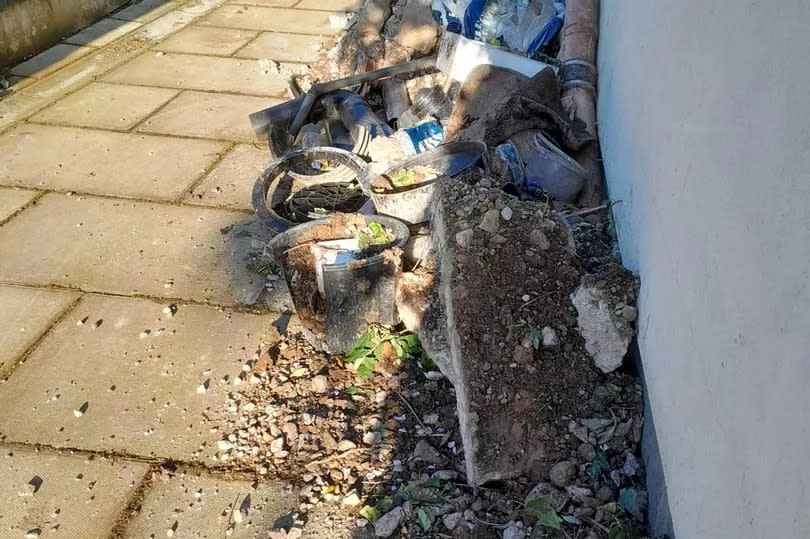
The city council is also looking at installing more CCTV cameras at the worst fly-tipping hotspots in the area. In 2022, the city council's first underground super-bins were installed at 12 sites across the city including two streets in Kensington.
The £1.5m scheme was aimed at cleaning up communities and tackling dumping and vermin problems in hundreds of inner-city streets, which do not have the space to use a wheelie bin. However, the Holt Road Residents Association say many streets in Kensington that were promised underground bins as part of the roll out are yet to get them.
When asked for an update on the roll out this week, Cllr Robinson said a review will be carried out in the coming months of how Euro bins and underground bins have worked across the city and what the future holds.
He added that while underground bins have largely been successful, they do present some logistical challenges when it comes to where they can be installed due to things like sewers and gas pipes that sit below street level.
Don't miss the biggest and breaking stories by signing up to the Echo Daily newsletter here

 Yahoo News
Yahoo News 
